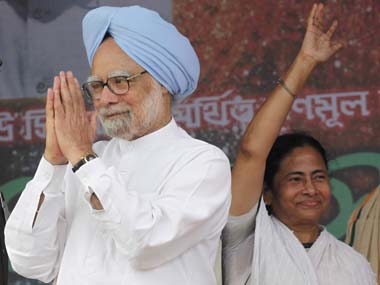For a central government that is struggling to build consensus on major economic policies, the opposition from 12 chief ministers across coalition lines does not bode well.
An Economic Times article today points out that the current standoff between the Centre and states could affect other major economic legislature like the Goods and Services Tax (GST) bill and the Pension Fund Regulatory Development Authority (PFRDA) bill.
[caption id=“attachment_219698” align=“alignleft” width=“380” caption=“Even allies like Mamata Banerjee have not supported the NCTC/ Reuters”]  [/caption]
State governments have been opposed to the GST citing a significant loss in revenue and are unlikely to yield any ground if the centre pushes the NCTC too hard.
Other legislation like the PFRDA bill and retail Foreign Direct Investment have also found little support even among allies like Mamata Banerjee.
The necessity of the economic reform cannot be understated and foreign investors have pointed to the lack of economic reform as something that could affect India’s growth.
India’s representative to the International Monetary Fund Arvind Virmani also said yesterday that India’s growth will keep declining slowly and steadily unless the pace of reform is raised.
With the deadlock over the NCTC unlikely to yield soon, should the UPA be willing to be flexible on it in the interest of larger reforms?


)
)
)
)
)
)
)
)
)



